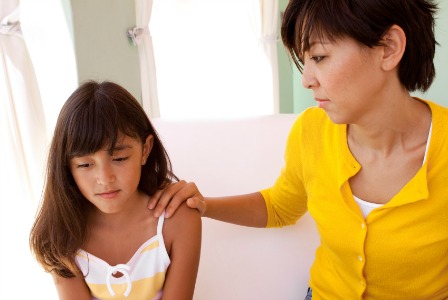
The school shooting story out of Newtown, Connecticut this morning has made us clutch our children tighter — or resist the urge to go grab them from their own schools.
Dealing with major tragedy as a family
As we fight to process our own fear and horror of the still-developing situation, how do we talk to our kids about it?
“I will never let my kids out of my sight again.” If you’ve been on any sort of social networking site today, chances are you’ve seen the parents on your friends list echo a similar sentiment — and chances are you are feeling that way yourself. As the details are still developing, and the story gets more tragic with each passing hour, you yourself are probably struggling to deal with the tragedy. How on earth can you discuss the school shootings in Connecticut with your kids?
Keep the news off
First, even though you want to keep up-to-date on the events, try to keep your television off when your kids are around. The images and video can be really scary to a child. Keep updated on the news on your mobile device or via your computer.
Find out what they know
Open dialogue with your child about the event — have they heard anything about the tragedy in Connecticut? What did she hear from her classmates today at school? Also, ask how your child felt about the situation if she has already heard about it.
Don’t fib
Even very young children can pick up on your emotions, so if they don’t already know, don’t try to hide the story. If you do, they may think you are upset with them, for example, or that something is wrong with a family member. Share the events with them — the amount of detail you give is up to you, but usually younger kids need fewer details than older ones.
Allow feelings to be felt
If your child is scared, upset or angry, don’t try to talk him out of his feelings. Instead, acknowledge them and be there for him as he expresses his fear or anger. You don’t have to hide your own despair or tears, either — your children will learn from you that emotions, even intense ones such as sadness, are normal.
Reassure your child
Your child, especially an older child, will understandably wonder if something like this can happen at her school. This also depends on the age of your child, but younger kids can be more easily reassured with fewer details. For example, explain that these events are very random and unlikely to happen again. You can let them know about the safety measures their own schools have put into place. Tell them that the adults around them are there to help protect them.
There are no easy answers when an unspeakable tragedy such as this takes place, and as more details roll out, it may be some time before we can fully understand what happened. In the meantime, keep to your regular daily routine, let them know that their little world is a safe one — and hug your kids tight.
More on children's health and development
How to help kids manage their emotions
Help your child understand emotions
8 Ways to raise a "whole" child